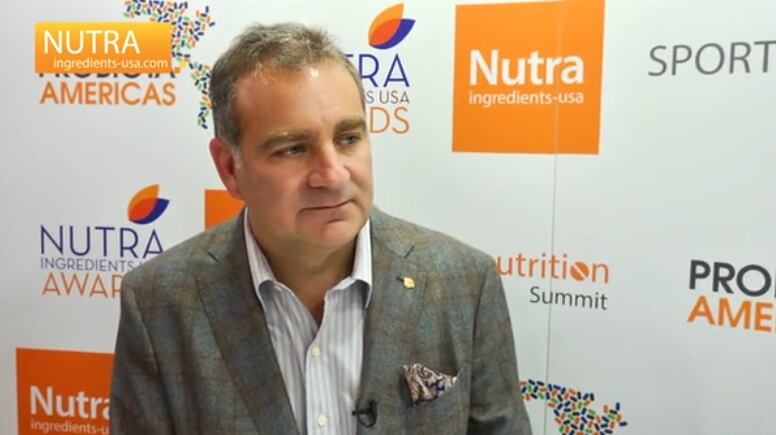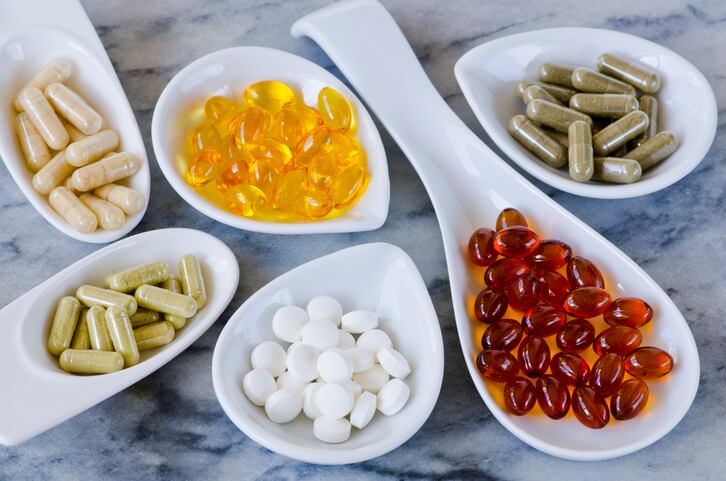Long Island-based Gemini Pharmaceuticals is continuing to operate despite being located at the epicenter of America’s COVID-19 outbreak. The company has definitely seen an uptick in business, Mike Finamore, the company’s CEO told NutraIngredients-USA during a telephone interview.
“Every point of the compass has more to do,” he said. “But I’m not sure the demand is a true reflection of what the market will support. You don’t want a surplus at every point of the supply chain once this calms down.”
It will be difficult to know if there’s artificial demand until we emerge out the other side of the current crisis, but for right now there are well-documented challenges for a number of ingredients.
“From an ingredient perspective, it was interesting to watch how the direct marketing companies very quickly identified the need for zinc, vitamin C, elderberry, ginger, and the other key ingredients, and they quickly wiped out most suppliers of those products,” said Finamore.
“Then the retailers and wholesalers wanted in on the party.”
China
Interestingly, Finamore said that he hasn’t seen much interruption of the supply chain from China.
“Chinese companies, since the Chinese New Year, have had a leash around their necks, but we haven’t seen an imbalance in the supply chain from China,” he said.
Supply from India, which has started to gradually ease the lockdown that put a stop to everything except essential services, is less of an issue for Gemini because the company doesn’t source a lot from there at the moment. Gemini does source some capsules from India, but Finamore noted that there was already a tremendous inventory, and India doesn’t seem to have slowed the manufacture of capsules.
Are we seeing more demands for ingredients sourced from the US compared to elsewhere? Yes, said Finamore, but that’s been going on for a while. “People are informing themselves about country of origin and looking at dual sourcing,” he said. “There’s definitely a recognition by the industry that a lot of essential ingredients come from China, but companies have been looking at this for six to eight months already because of the tariffs.”
Packaging

One input that does seem to be an acute concern is around packaging and glass bottles in particular.
Just last week Sam Wiley, CEO of omega-3 brand Wiley’s Finest, told NutraIngredients-USA there was next to no availability of bottles for consumer goods that hold liquids from two ounces up to a liter. “Those kinds of packaging supplies cannot be found for any amount of money,” said Wiley. “They’re like the toilet paper of industrial supply.”
Finamore said: “Looking at our industry, pretty much all the glass bottles used for dietary supplements come from one supplier in China. The logistics train had been affected but we’re starting to see that start to open up.”
On the flip side, there do not seem to be any concerns around excipient availability, said Finamore, because these can be sourced from multiple suppliers in countries like China, the US, Malaysia, and elsewhere.
Mixed messages from government
Gemini Pharmaceuticals' location in Long Island, puts at the very heart of the country’s worst outbreak of COVID-19 cases (as of April 21, New York State had recorded 258,361 cases of COVID-19, with 18,821 deaths, according to Johns Hopkins CSSE).
“As a company located in Long Island, we’re experiencing all sides of this at the same time,” said Finamore. “We’re getting mixed messages from the government. The government has been lenient about people not going to work, but we’re an essential business, and the workforce often doesn’t know where it stands.”
And these mixed messages are a source of frustration for Finamore. “Every time the government doesn’t speak with one voice it’s a problem. Looking at the small business loans and the PPP [Paycheck Protection Program], are some companies taking advantage of that when they shouldn’t be? The government is throwing recovery aid around but is that aid really going to the companies that need it the most?”
GRMA
“With this industry running at 100 mph we will undoubtedly see bad actors do what they do,” said Finamore, who also serves as chairman of the Global Retailer and Manufacturer Alliance (GRMA).
GRMA is a store-brand industry initiative driven by retailers, manufacturers, trade associations, certification bodies, academia, government agencies and other stakeholders seeking to improve quality, safety and regulatory compliance to ultimately benefit the customer.
“This crisis will actually make GRMA more important,” said Finamore, who explained that the alliance is about ensuring quality systems are functioning. Under the current situation, this would take the burden off the third party auditors and the FDA (which suspended inspections).
“As retailers are running into manufacturers that may not be familiar, by having GRMA it will ensure that the people they’re considering working with are doing what they are supposed to do.”
Audits
Just this week, the GRMA announced that it had signed an agreement for NSF International to serve as a certifying body providing audits to GRMA member suppliers.
“With the finalization of the three standards for dietary supplements, cosmetics/personal care products and over-the-counter drug products, NSF International is now poised to complete audits to the various standards used in the development of the GRMA certification program,” said David Trosin, Managing Director of Health Sciences Certification at NSF International.
“The GRMA has made great strides in increasing efficiencies and reducing costs for its members by identifying costly inconsistencies across the various conformance standards required by multiple manufacturers and developing a single, more comprehensive harmonized standard. This will have a significant positive impact on manufacturers by reducing the number of audits and total audit days. As a result, manufacturers can look forward to as little as one audit per site per year, with results accepted by any GRMA member,” added Trosin.





